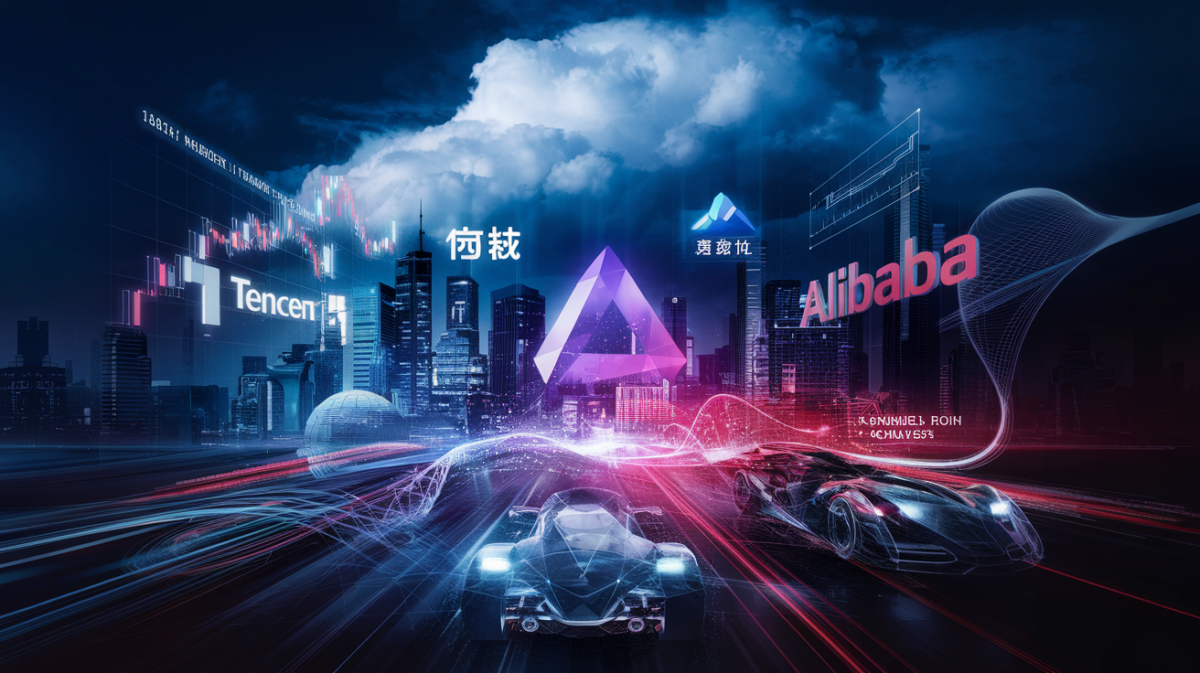China’s technology sector is grappling with the growing pains of artificial intelligence (AI) as major players like Tencent and Alibaba pour billions into development, yet face uncertain returns. The race to dominate AI has sparked fierce competition, price wars, and geopolitical tensions, leaving investors wary of the sustainability of these investments.
Heavy Investments, Uncertain Returns
Chinese tech giants are betting big on AI, but the path to profitability remains unclear. Tencent, for instance, tripled its capital expenditure to $10.7 billion last year, with a significant portion dedicated to AI applications. Its R&D expenses also surged by 10%, reaching nearly $10 billion. Despite the rapid adoption of its AI assistant, Yuanbao—which saw a 20-fold increase in daily users—the company is struggling with shrinking profit margins due to aggressive pricing strategies in the AI market.
Alibaba is no exception. The company announced a staggering $52.6 billion investment in cloud computing and AI infrastructure over the next three years. While its revenue growth remains strong, the profitability of its AI ventures is under pressure as competitors slash prices to gain market share.
The Rise of DeepSeek and Market Reactions
The emergence of Chinese AI startup DeepSeek has further intensified the competition. Its advanced AI models have garnered widespread adoption among leading corporations, fueling a surge in AI-related investments. This development has also heightened the Sino-U.S. technology rivalry, with geopolitical tensions adding another layer of complexity.
- Stock Volatility: Chinese tech stocks have been highly volatile. The Hang Seng Tech Index dropped 2.6% in a single day, reflecting investor concerns over weak earnings and geopolitical risks.
- Investor Sentiment: DeepSeek’s rapid ascent, backed by strong government support, has positioned it as a key player in China’s AI landscape. However, the broader market remains cautious about the sustainability of these investments.
Challenges and Concerns
The AI boom in China is not without its risks. Industry leaders have raised alarms about a potential investment bubble, drawing parallels to the dot-com era. Baidu’s CEO, Robin Li, warned that only a fraction of AI companies will survive the current frenzy.
Geopolitical tensions are another major hurdle. U.S. policies targeting Chinese investments have introduced market volatility, with significant stock declines adding to the sector’s challenges.
Comparing the AI Strategies of Tencent and Alibaba
| Company | Investment Focus | Key Challenges |
|---|---|---|
| Tencent | AI applications, R&D | Price wars, shrinking margins |
| Alibaba | Cloud computing, AI infrastructure | Profitability pressure, competition |
Looking Ahead
China’s tech giants are at a crossroads. While their aggressive AI investments aim to secure a competitive edge, the sector faces significant risks—from market volatility to geopolitical tensions and the specter of an investment bubble. The future will hinge on their ability to balance innovation with sustainable growth, all while navigating an increasingly complex global landscape.
For now, the AI race in China is far from over, but the road ahead is fraught with challenges that could reshape the industry in unexpected ways.







